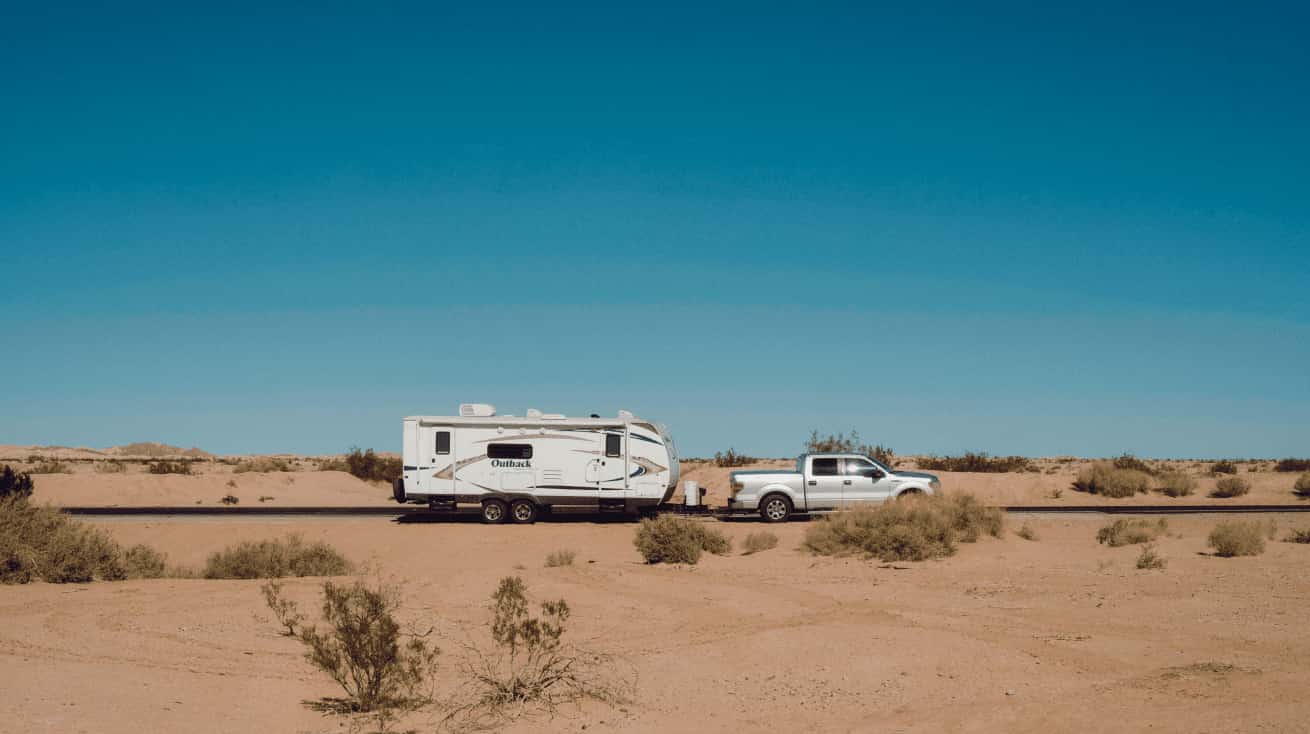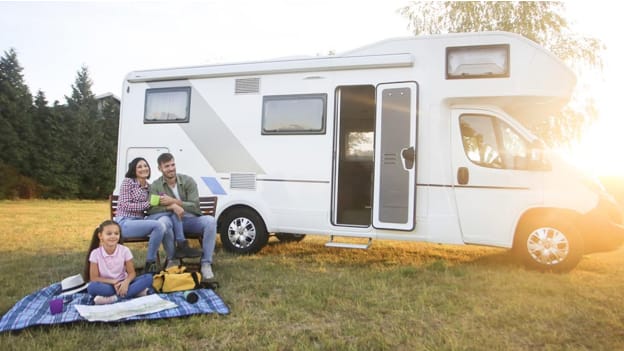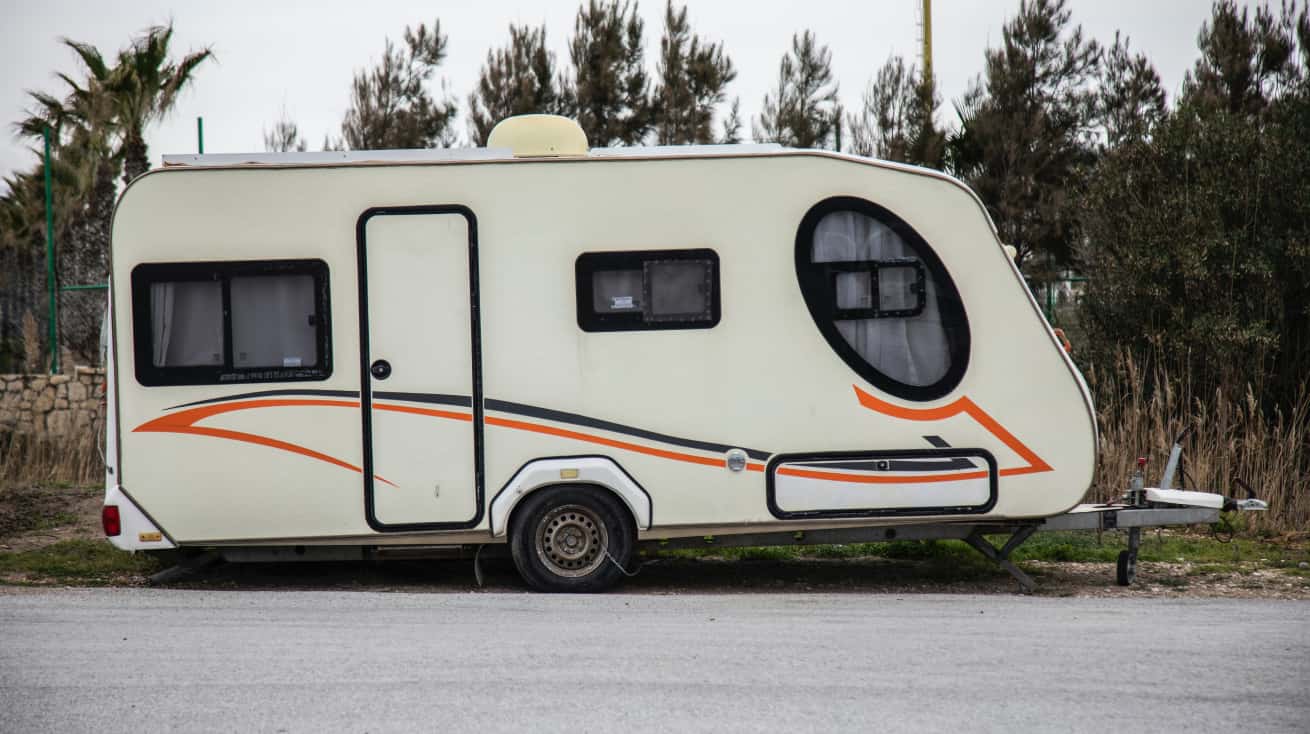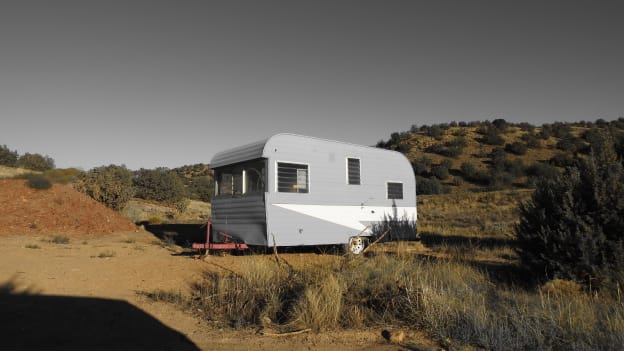When buying an RV, there are good reasons to consider both new and used. Let us help you decide.
The basics
Consider buying a new RV if you:
- Are willing to pay more (and wait longer) for the latest and greatest
- Have a very specific list of features you’re committed to
- Value the peace of mind that comes with a factory warranty
- Wish to reduce the likelihood of hidden maintenance or repair issues
Start your online RV loan application or visit a U.S. Bank branch to talk about your RV loan options.
Consider buying a used RV if you:
- Wish to keep your upfront costs at a minimum
- Want your RV to retain more of its value over time
- Prefer the potentially lower insurance rates and registration costs of a used RV
- May be willing to hire a professional to thoroughly inspect the RV before purchase
We offer flexible financing on used RV loans. You could get a same-day credit decision with our online RV loan application.
Pros and cons of buying a new RV
Pros:
Obviously, first and foremost, you get to be the first and only owner. Everything inside and out is fresh from the factory and in pristine condition, and you get to enjoy that “new RV smell”. There’s no mystery about the RV’s history, and it can have a spotless maintenance record as long as you do your part.
When you buy new, you can specify exactly the RV you want, with exactly the options and accessories that suit you. If you buy an RV from a quality manufacturer, you can be reasonably confident that everything will work as it should – and if something goes wrong within the first few years, there’s a good chance it will be covered by a manufacturer’s warranty.
When it comes to financing, you may get a lower interest rate and a longer term on a new RV. Remember, loan terms for new RVs are longer than those for cars, so your monthly payment could be lower than you think. On the other hand, you’ll want to plan for a longer series of payments than with a car, so the RV will lose more of its value through depreciation before you’re done paying for it.
Cons:
All other things being equal, a new RV costs more than a used RV – often a lot more. And just like a new car, a new RV will typically lose up to 20% of its value in the first year – with much of that depreciation occurring the moment you drive it off the lot. New RVs depreciate fastest over the first few years of ownership, so buying new can make it harder to recoup your investment when it’s time to sell.
Also as with cars, a new RV will cost you more in related fees. You’ll pay a premium to license, register and insure your new RV.
Lastly, when thinking about all the new gadgets and customizations you want in your new RV, keep in mind that these special orders can take time to fill. Because of pressures on the supply chain and labor market over the past couple of years, it could be months before you take delivery on a new RV with all the features and upgrades you want.
Should I get a pre-purchase inspection on a new RV?
Even when buying new, there are good reasons to protect yourself with a thorough pre-purchase inspection by a licensed professional. An RV is a complex beast composed of many different components made by different manufacturers and installed by the RV maker or at the dealership. The more elaborate the RV, the more there is to go wrong. And since it literally is a home on wheels, an RV is subject to the same kinds of repair issues for appliances, electrical systems, plumbing and so on. Making sure everything is working properly and installed securely before you buy can save you plenty of headaches down the road.
Pros and cons of buying a used RV
Pros:
The main reason most buyers choose a used RV is the lower upfront cost. You can save thousands on an RV that’s a few years old versus a similar new model. And because pre-owned RVs lose value more slowly than new ones, you’re likely to get more of your investment back when you decide to sell.
If you’re diligent, you may find an affordable used RV loaded with options and extras that you wouldn’t have thought to request. And as with any other used market, every seller has a different reason to unload their property. A motivated seller can give you the upper hand in price negotiation, resulting in a great deal for you.
Another good reason to buy used is that your RV is ready for delivery immediately, versus the potentially lengthy wait for a new RV. With a used RV, you can quit anticipating and hit the road sooner. Following a nationwide boom in new RV sales during the pandemic, there is now an surplus of RVs available on the used market, meaning lots to choose from.
Cons:
In exchange for saving money at the point of purchase, you’ll take on a certain amount of risk. You should always thoroughly investigate the service history of a pre-owned RV – but even then, it’s impossible to be sure you know all there is to know.
Be prepared to incur more repair and maintenance costs in the near term. Manufacturer’s warranties on RVs don’t transfer to a second owner, so chances are you’ll be paying for any unexpected issues. Fortunately, if the original owner purchased an extended warranty package, it likely is transferable (and will probably be reflected in the purchase price). If there’s no existing extended warranty, you may wish to consider purchasing one. Extended warranties are often offered as an add-on at the dealership – but make sure you understand the limitations of any warranty before signing up.
Most insurers will require a thorough inspection by a certified professional inspector before providing coverage on a used RV (and the same goes for lenders). This inspection can cost several hundred dollars, but it’s a good idea as a prerequisite to buying any pre-owned RV regardless. If hidden problems exist, a professional inspection can save you from an ill-advised purchase.
The ”ten-year rule”
One consideration that’s unique to purchasing a used RV is what’s commonly known as the “ten-year rule.” This refers to the fact that many RV park owners reserve the right not to allow you to use their facilities if your RV is more than ten model years old. It’s not universal, but it is common, especially in popular RV locations like Florida and Arizona.
The good news is that the ten-year rule is essentially a cover for the right to turn away RVs that are in poor physical or cosmetic condition. An RV is like a neighborhood, and park owners want to avoid accommodating RVs that are eyesores or may leak toxic fluids. As such, if your ten- (or twenty-) year-old travel trailer still looks good and functions well, chances are you’ll be granted an exception.
RV buying tips

Choosing the right RV
Learn about different kinds of RVs and find the one that’s right for you.

How I did it: Deciding whether to buy an RV
U.S. Bank Vice President Jen Wendt discusses the considerations that went into her family’s decision.

Costs of owning an RV
Be sure you consider the long-term costs of RV ownership when budgeting for your purchase.

